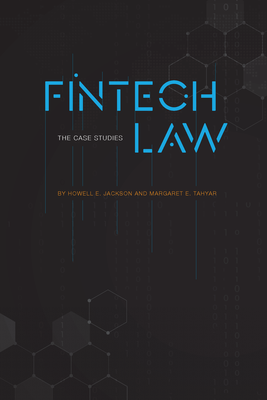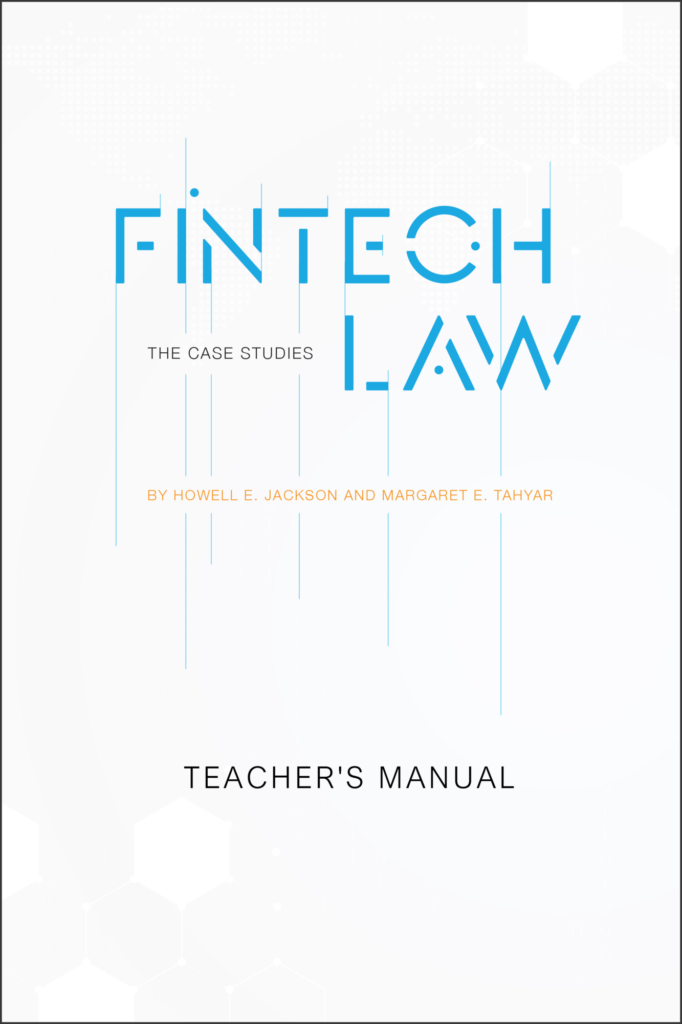
Fintech Law: The Case Studies is designed to introduce students and professors to innovations through fourteen new case studies. Each study focuses on an actual development in technology or information processing that has posed novel legal challenges for practicing attorneys or financial regulators in recent years. We developed these case studies over the course of two years in teaching a pair of modules at Harvard Law School. Our goal was to introduce our students to the digital transformation of financial services now underway. We chose to develop a series of case studies modeled on the Harvard Business School case study method, but adapted for the teaching of law. In each case study, students are put into an institutional context that a young lawyer might face at a law firm, government agency, congressional office, or other setting in which practicing attorneys might expect to confront problems of law and policy with respect to innovations in Fintech. In each case study, students are called upon to give the kind of advice to clients required in actual practice settings.
In the Spring 2020 semester, we had an opportunity to field test a few of the case studies in classes taught online over Zoom, and the materials worked quite well in that setting, as they offer students the opportunity to work collaboratively in advance of class and then to react to each other’s presentations during online discussions. The case studies could be used to supplement an introductory course on financial regulation or as the core of a specialized course on Fintech Law.
The eBook is available free of charge in PDF format
We have also prepared a detailed Teacher’s Manual with teaching notes for each of the case studies, as well as some general suggestions as to how these case studies might be incorporated into a general course on financial regulation. The notes outline the pedagogical goals of each study, suggest different ways in which each case study might be assigned to students, and summarize the issues that students might be expected to raise in responding to the questions posed in each case study. In our own use of these case studies, we have emphasized team presentations, as a number of the studies pose a number of issues and students, in our experience, enjoy the opportunity to work collaboratively on assignments of this sort. Learning how to make group presentations is also good preparation for practice.
The Teacher’s Manual is available to instructors upon request (and also free of charge). If you are interested in a copy, please reach out to the authors:
Howell E. Jackson
James S. Reid, Jr., Professor of Law, Harvard Law School
hjackson@law.harvard.edu
Margaret E. Tahyar
Partner, Davis Polk & Wardwell LLP
margaret.tahyar@davispolk.com

